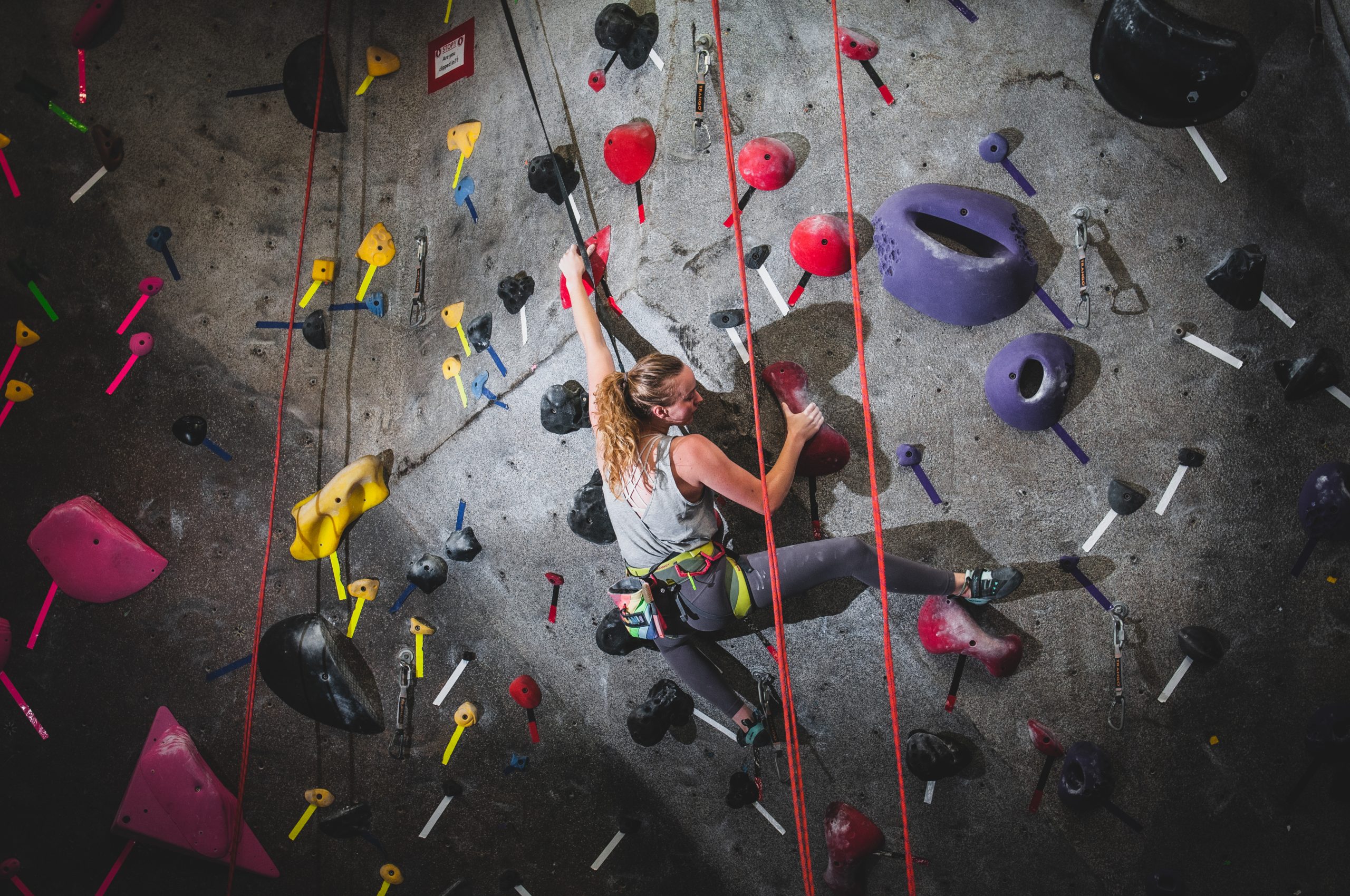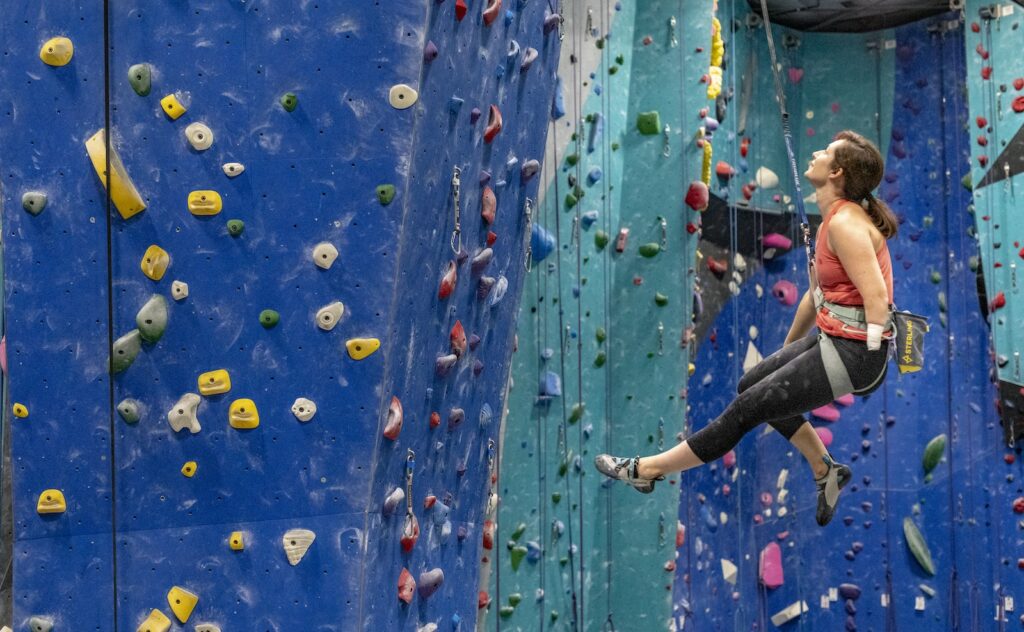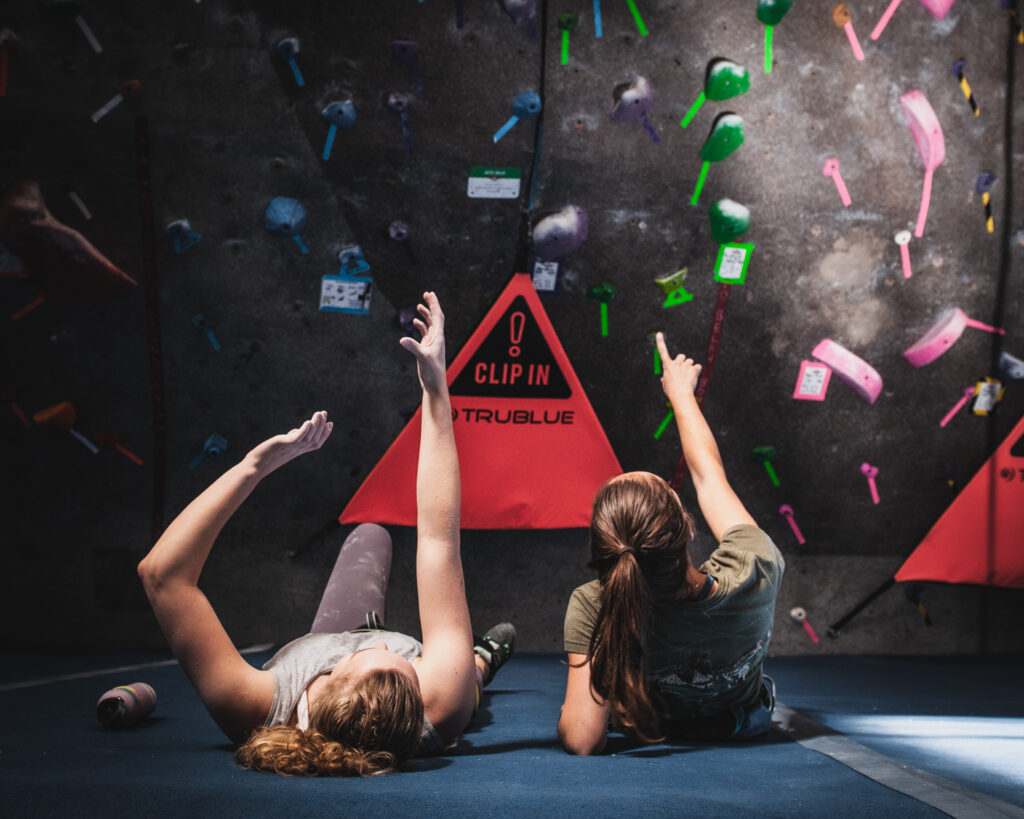Campus rec centers looking to invest more into new training opportunities for collegiate climbers can do so with the addition of auto belays on the climbing wall. Auto belays attract both student-athletes and collegiate competition climbing with their ability to cater towards climbers of all levels. With auto belays, collegiate climbers can be better instructed by their coaches and practice more skills to increase their athletic abilities. Experts from TRUBLUE Auto Belays, the number one auto belay in the world, explain how campus rec centers can bring new training opportunities to collegiate climbers with auto belays.
Skill Development
Auto belays are “the training partner that’s always there for you” no matter what skill a climber is practicing. For new climbers, getting on the wall can be the most intimidating part of starting, especially when a seasoned climber is not there to belay. Auto belays allow for beginners to approach the wall with more confidence independently and start climbing any way they want. Even if someone is using an auto belay for the first time, they have a chance to make it to the top of the wall on day one, getting a feel for the holds and movement as they ascend the climbing wall. Auto belays also help develop proper foot techniques and ninja-like moves, which is critical for climbing. And when the time comes to conquer the art of belaying, auto belays provide an extra safety net for any mistakes that a new belayer might make.
Strength Training
Many climbers progress in the sport through strength training, which often involves many hours spent on the wall. Strength training helps to improve overall ability and power. Climbers working on strength love auto belays because they help develop skills twice as fast. Climbers more easily execute strength-building exercises such as lock off-training that targets arms, legs and core with the help of an auto belay. Auto belays can strengthen a climber’s core by training the mental and physical notion of keeping hips close to the wall. For collegiate climbers, training for complex moves can be scary after experiencing a hard landing. An auto belay can take away fear and boost a climber’s confidence, even making practicing more challenging moves a collegiate climber’s best and favorite session on the climbing wall.
Endurance
Endurance is a must for climbing vertical terrain. A tireless partner such as an auto belay supports endurance exercises like ARC training, which is climbing at an athlete’s limit for a lengthy period of time. The goal of ARCing is to climb continuously without taking a break for 20 to 45 minutes. Auto belays also help with linked sport climbing circuits. This type of training endurance activity links together several near limit sport climbs. Training on a pyramid with an auto belay can allow climbers to try and conquer an entire pyramid on their own watch. When training on a pyramid, a climber warms up on a familiar climb, escalates up to more difficult routes, then moves back to the lower difficulty for a cool down. In addition, auto belays make route intervals more accessible for hours of training at any campus rec.




Leave a Reply